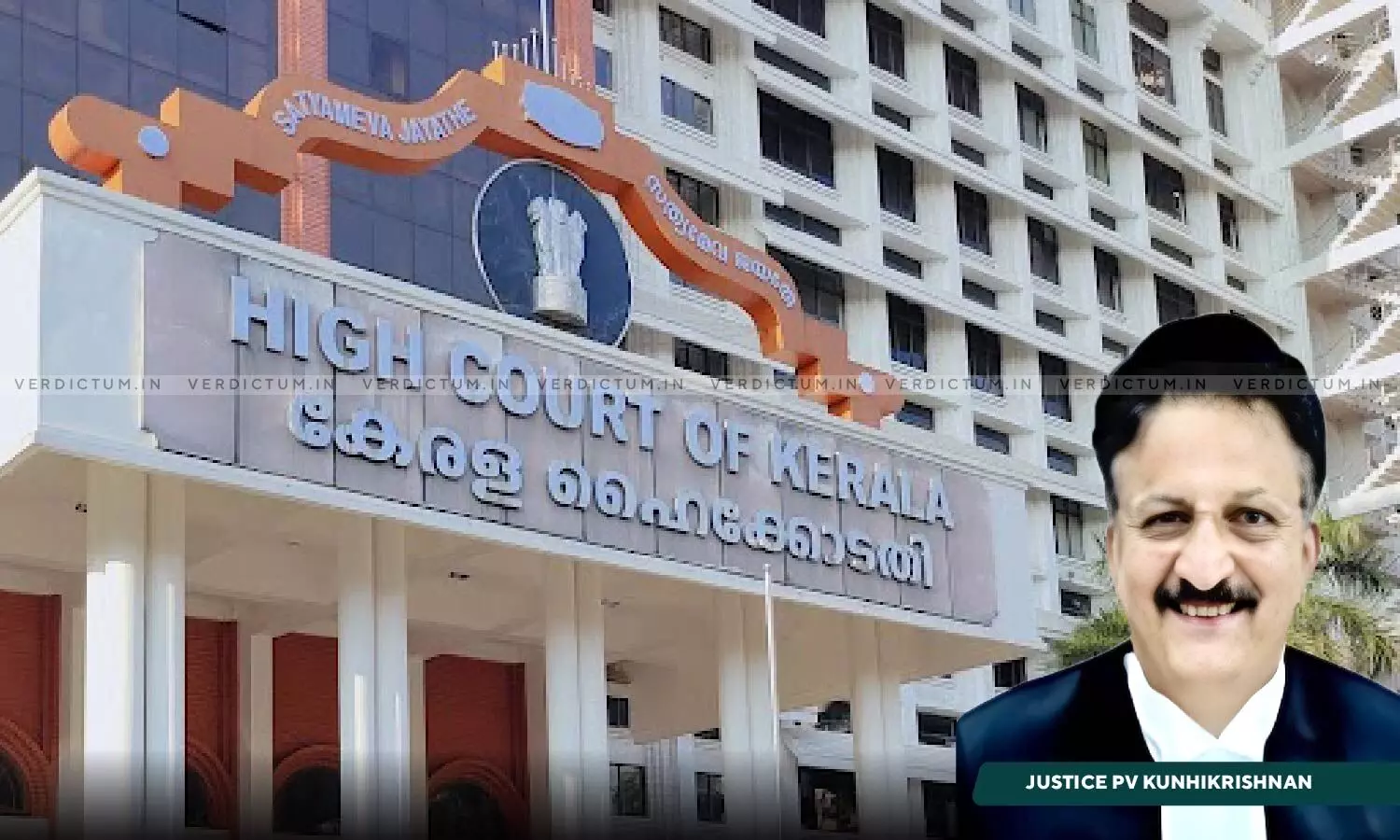
Justice P.V Kunhikrishnan, Kerala High Court
Accused Filed Two Appeals To Evade Conviction: Kerala High Court Sets Aside Acquittal, Issues Directions To Prevent Duplicity
 |
|A man convicted of robbery secured a second acquittal in 2016 by concealing a previously dismissed appeal.
The Kerala High Court has issued stringent directions to prevent the filing of duplicate appeals, revisions, and other proceedings in the same matter after uncovering a case where an accused person managed to secure an acquittal by suppressing the dismissal of a prior appeal.
A Bench of Justice PV Kunhikrishnan held, “To avoid multiplicity of appeals, revision and other proceedings arising from the same matter, it is not only the duty of the court alone, but it is the bound duty of the lawyers, litigants and the registry of the court concerned as well. Otherwise, there will be far-reaching consequences.”
The Court ordered, "Strict directions should be given by the Principal District Judge to his office to number all cases only after manually verifying that there are no earlier proceedings on the same issue. The registry will forward a copy of this judgment to the Home Secretary, Government of Kerala and the State Police Chief."
Senior Public Prosecutor Seetha S appeared for the Respondents.
Background
The matter stemmed from a case registered at Kayamkulam Police Station involving four accused persons. A trial court had convicted three of them under Sections 392 (robbery) and 457 (lurking house-trespass) of the Indian Penal Code (IPC). In 2013, the Sessions Court dismissed the appeals filed by the convicted men.
One accused filed a second appeal before the same Sessions Court in 2015, through a different lawyer, without disclosing that his previous appeal had already been dismissed. This second appeal, filed after a delay of 1,223 days, led to his acquittal by an Additional Sessions Judge in 2016.
The discrepancy was brought to light by the District and Sessions Judge of Alappuzha, who flagged the issue to the High Court. Upon learning of the matter, the High Court initiated suo motu revision proceedings to examine the validity of the 2016 acquittal order.
Findings
The Court noted, “Here is a case where two criminal appeals were filed before the Sessions court by the same accused through two different lawyers, and in one appeal, the conviction and sentence were confirmed, while in the other, the same accused was acquitted. Who is responsible?”
The Court observed that the accused had deliberately suppressed material facts and manipulated the system to obtain an acquittal. The High Court categorically held that a person who has already exhausted appellate remedies cannot re-approach the same court on the same cause, especially by concealing the existence of the prior dismissal.
"…this incident serves as a lesson to all the stakeholders, and all should work together to protect the criminal justice delivery system," the Court remarked.
On August 1, 2025, the High Court set aside the 2016 acquittal, invoking its inherent powers, and imposed a cost of ₹1 lakh on the accused, payable to the Kerala State Legal Services Authority within a month.
The Court issued a set of strict directions to ensure such incidents are not repeated. District Judges were directed to manually verify whether any earlier proceedings exist in a matter before numbering any appeal, revision, or similar petition, Principal District Judges were asked to enforce strict supervision of registry practices and to personally ensure that duplicate cases are not entertained, the Registrar (District Judiciary) was instructed to circulate the judgment to all Principal District Judges in the State.
Copies of the judgment were also directed to be forwarded to the Home Secretary, Government of Kerala, and the State Police Chief, so that law enforcement authorities can also take necessary precautions to avoid similar occurrences.
The Court emphasized that preventing duplicate appeals is a shared responsibility between courts, lawyers, court staff, and litigants. It also pointed out that police authorities must inform prosecutors of prior case histories so that such information can be brought to the court's notice during proceedings.
The High Court had earlier directed the Registrar (Vigilance) to conduct an inquiry into how such a lapse occurred. The Registrar reported that the district judiciary had no automated mechanism to flag duplicate cases, and that such checks relied entirely on manual inspection of physical registers.
However, it was confirmed that from January 1, 2026, a unified case-type system would be introduced, which would enable automatic detection of duplicate or related cases across courts.
The Registrar also confirmed that the advocate who filed the second appeal was not aware of the prior appeal, as claimed, and the Court accepted this explanation, noting that the deception had originated from the accused, not the lawyer.
Setting aside the 2016 acquittal order, the High Court reiterated its commitment to safeguarding the integrity of the criminal justice system and ensuring that procedural safeguards are not abused.
Cause Title: Suo Motu proceedings initiated by the High Court v. State of Kerala & Ors., [2025:KER:58449]